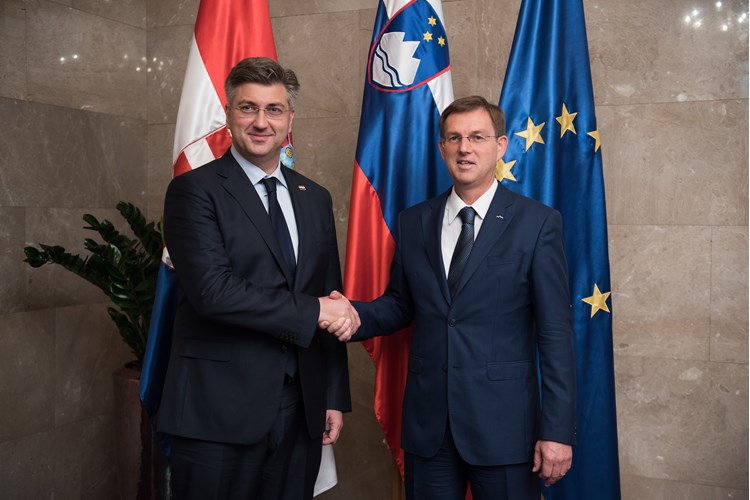


Cerar and Plenkovic met for the first time since the Hague-based PCA arbitral tribunal presented its decision which Slovenia treats as binding, while Croatia insists it is non-binding after Ljubljana irrevocably compromised the proceedings.
"At our next meeting, set for September, we would like to draw up a catalogue of all outstanding issues," Plenkovic told a news conference after his two-hour talks with his Slovenian counterpart in Ljubljana.
The open issues comprise all disputes stemming from the period of the collapse of the former Socialist Yugoslavia, including the border demarcation.
"Slovenia wants the arbitral award to be implemented, however, Croatia finds the award non-binding," Plenkovic said.
He recalled that in 2009 Croatia signed the relevant agreement in good faith but Zagreb had to pull out of the proceedings due to Slovenia's actions that were in in contravention of the law, and consequently, the arbitral award was irrevocably compromised.
Dialogue can facilitate the efforts of the two sides to seek a bilateral solution that suits both of them, Plenkovic said.
"We want to emphasise the things that bind us," the Croatian head of government said, mentioning the good bilateral economic cooperation and political cooperation of the two member-states of the European Union and NATO.
Cerar told the news conference that Slovenia kept the position that the abritral award was binding both for Slovenia and Croatia and that the proceedings conducted by the arbitral tribunal had not been compromised.
He claims that the European Commission supports the 29 June ruling and its implementation.
Cerar expects Croatia to acknowledge, during dialogue on the issue, the jurisdiction of Slovenia over the areas which belong to Ljubljana under the arbitral award so as to avoid incidents.
Cerar went on to say that both sides could be satisfied with the Ljubljana meeting as it was conducive to the continuation to dialogue.
He insists that the implementation of the ruling would create a new positive atmosphere between Ljubljana and Zagreb.
"This is not only about the relations between two countries but also about the rule of law and international treaties," the Slovenian PM added.
In late July 2015, the Croatian parliament adopted a decision to withdraw from the arbitration agreement that the two countries signed in 2009 and made a recommendation to Slovenia to commence negotiations on an alternative way to resolve the border dispute. Zagreb finds the process contaminated after it was discovered that Slovenia's agent Jernej Sekolec and an official in the Slovenian foreign ministry, Simona Drenik, had discussed Slovenia's arguments in the process and lobbied with other arbiters. Sekolec and Drenik resigned from their posts as a result.
On the other hand, Cerar is sure that Zagreb will gradually accept the ruling.
Plenkovic explained that there was no mechanism to be applied by any international protagonists to make Croatia implement the ruling.
Text and photo: Hina